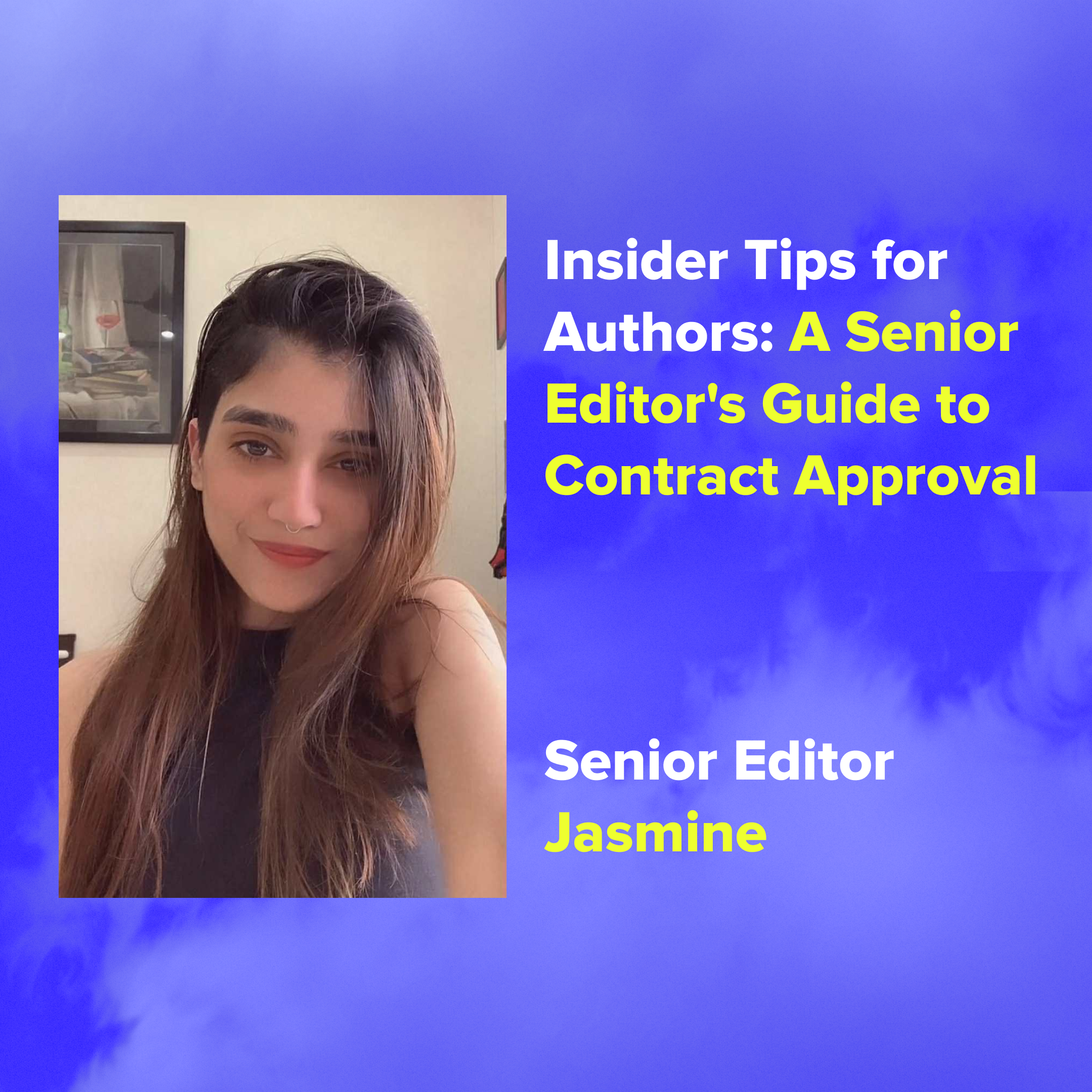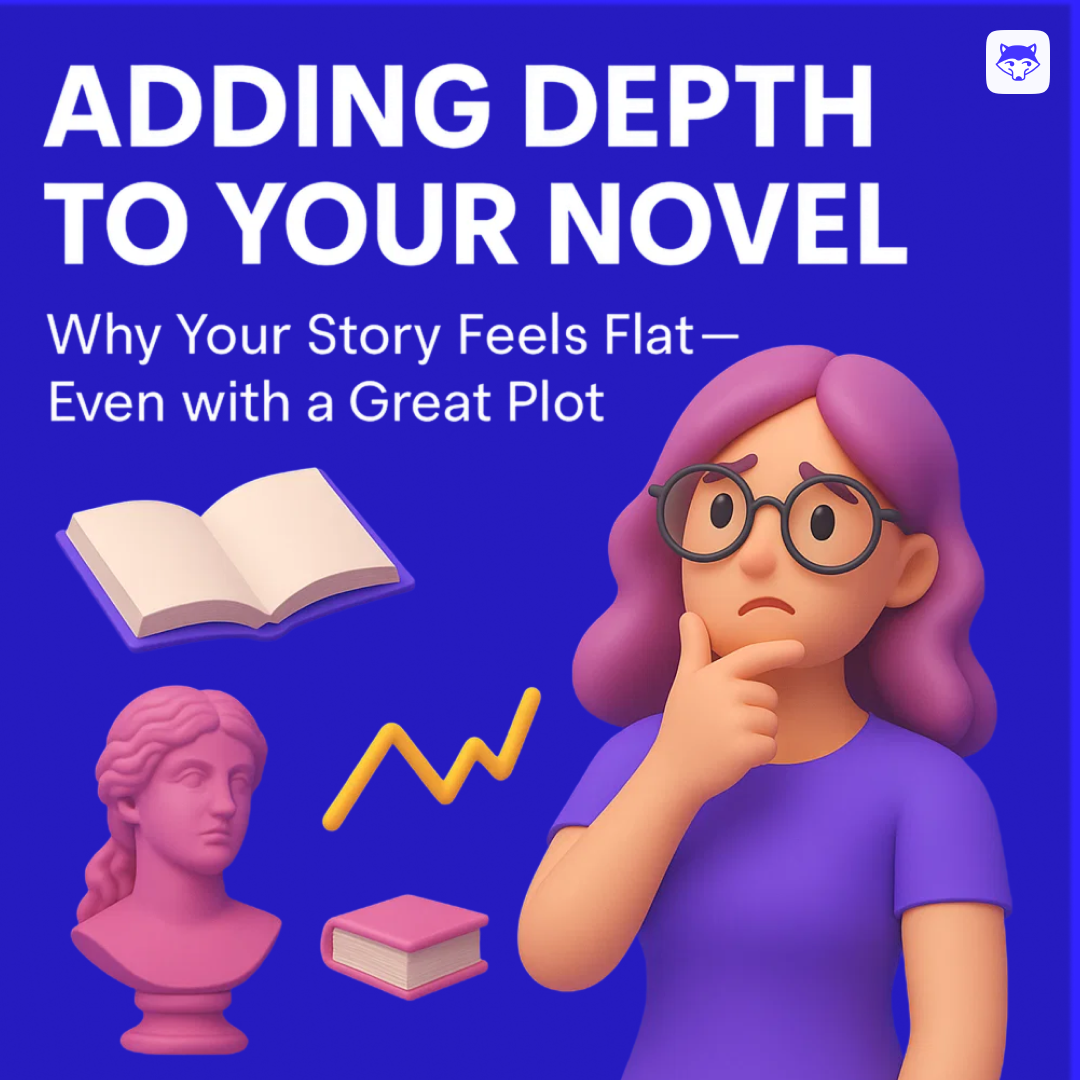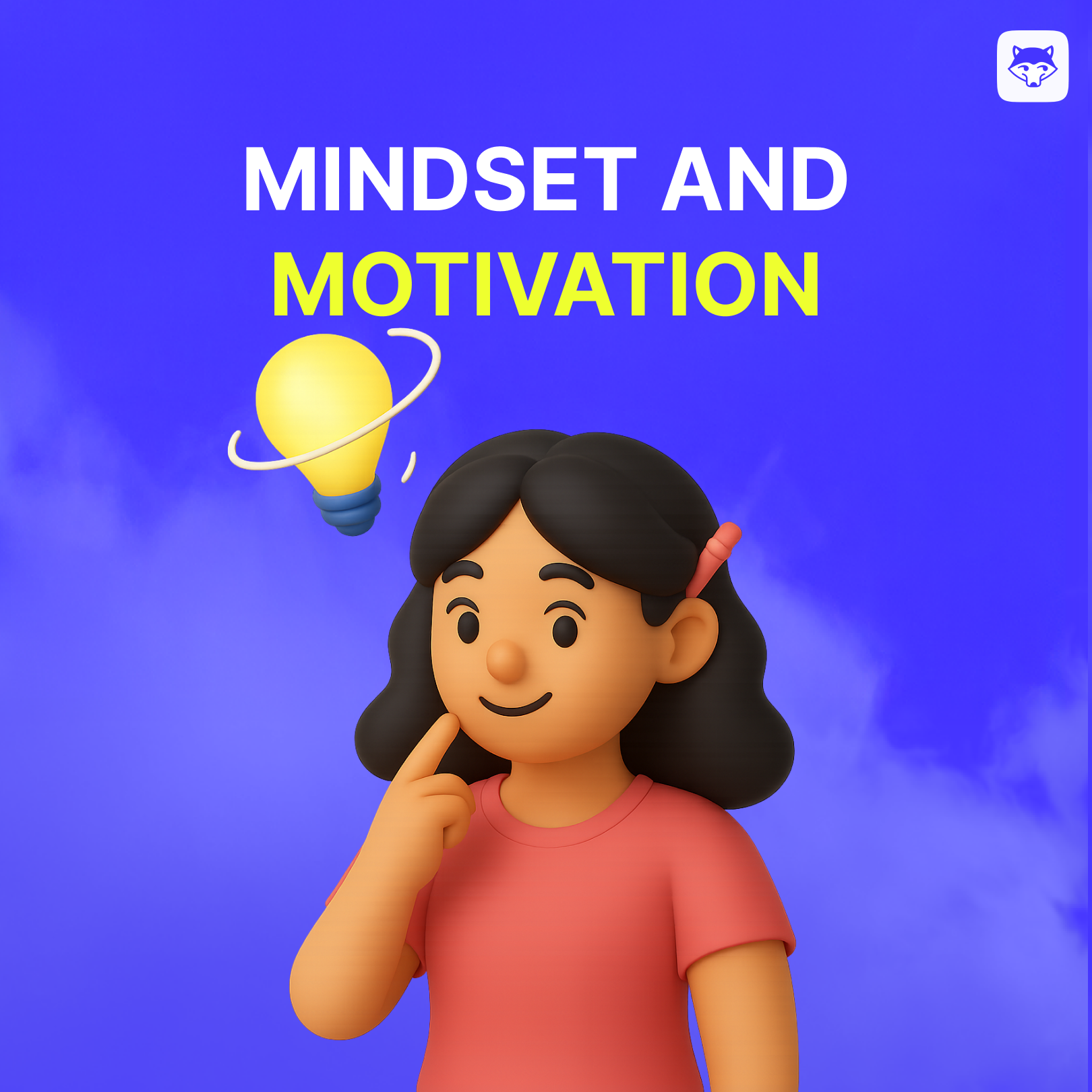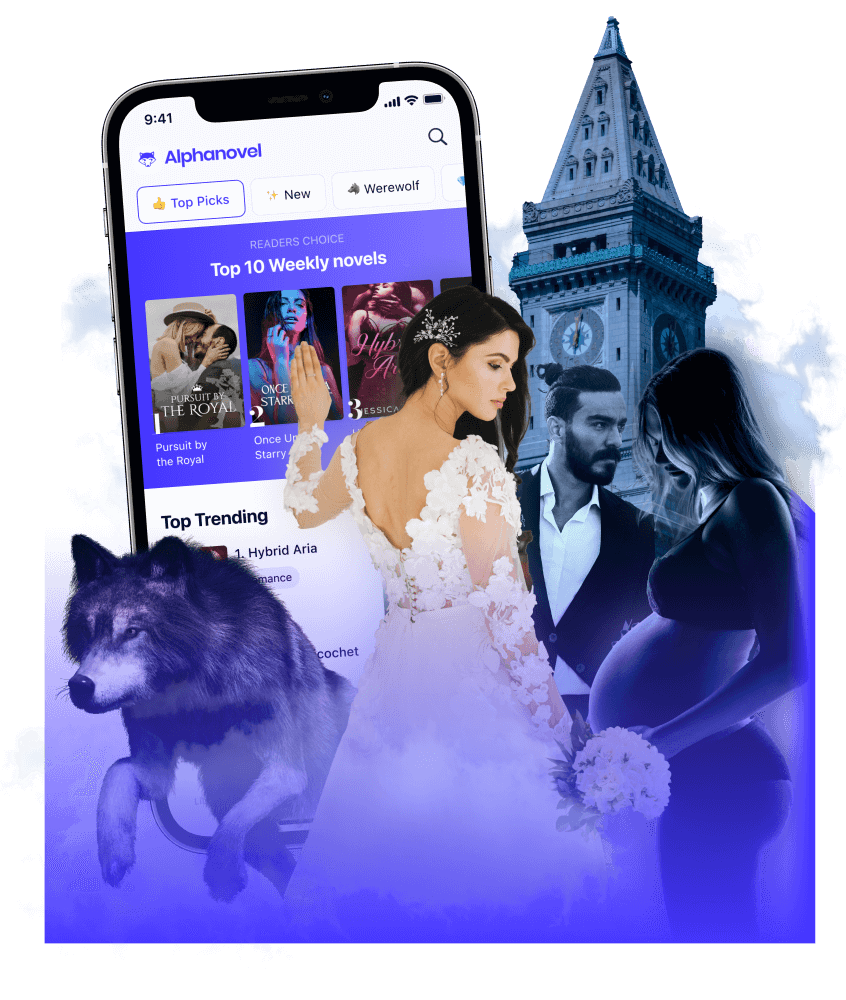The journey from completing a novel to seeing it published can be filled with excitement and anticipation, but also anxiety, especially when it comes to the contract approval process. At AlphaNovel, we understand how crucial this stage is for authors. That’s why we sat down with our Senior Editor, Jasmine, who is responsible for contract reviews, to get insider tips and advice for authors seeking approval.
How does the genre of a book affect its approval chances?
In our line of work, genres always play a crucial role. Everything we need to know about the book is in the genre itself. It helps us give insightful information about the plotline, the twists, the cliffhangers, and how amazing it will turn out to be if written with suspense, and with a hint of romance.
Especially with famous tropes like Werewolf/Vampire, Billionaire, Mafia, etc., in our mind, there’s always the need to find something new in each book. And once we find it—that fits the genre—it’s approved right on the spot, and contract is on the way.
Famous tropes are always better to go for, since the global reader base needs just a little bit of suspense, a little bit of thrill, and a little bit of spice. And what’s more intriguing than falling in love with a morally grey vampire, right?
Can you walk us through the most common reasons a book might be rejected?
Authors, always trying to thrive in their own way, do a great job when it comes to following the hype. But when it comes to believing in their work, some question it. Doubts and second thoughts can occur anytime in our life. We can’t control it. But we can choose not to let that affect us.
Sometimes, authors write their books with unique, fresh plots and amazing cliffhangers. But what makes us reject the book is following the usual cliché trope.
If the book is about werewolves, Lycans, fae, and dragons – they’re fighting for their lives. War is at play. And suddenly, there comes a contract marriage in exchange for tropes. Doesn’t fit, right?
Looking into trending tropes is good, but it doesn’t mean one has to forcefully include it in the book they’re writing. To put it in small words, let’s focus on the famous saying: “You won’t jump off a cliff just because someone does the same.”
You all know in reality that you won’t do it. The same goes for writing. Don’t follow the same footsteps others have walked through. Their life is different, their path is different. The roads they’re driving on are different. Follow your own. Be unique.
Do what you think is the best for you and your work. Their thinking is different, but yours is fantastic. Stick to what you want to write.
It’s your work, and it should belong only to you. Follow your heart and witness yourself thriving soon.
What are some common grammar or formatting mistakes that authors should avoid?
For us true readers, once we know the book is way too good, we’d search for ways to read it—even if it takes all our energy. We’d buy it, spend coins for it, and maybe even subscribe to an author’s profile on a whole other platform on a monthly basis for it.
Imagine being overly excited, done with the formalities, about to have a cup of coffee and about to read, when you see the first chapter itself is merged in one big paragraph. The punctuations are half missing. What seemed like dialogues are nothing but descriptions of a scene explained. What implied to be events of the present suddenly turned into nightmares of the past.
Differentiating, dividing, and separating such issues explains how advanced and experienced we are within our line of work. Confusion comes when questions turn into statements and statements turn into questions.
Using commas, question marks, quotation marks, stars, hyphens, etc.—these are all necessary symbols included in grammatical norms. Prioritise them, and the reader will finish the book in one go as she finishes her coffee—already fully, and completely lured in.
What makes a novel stand out to you immediately?
Whenever I scroll through novels, what catches my eye the most is how the book is presented. How much effort has the author put in. How the book cover is. How short, simple, yet addictive the blurb is. Everything you need to know about a book is at the very first glance.
Efforts always speak up. Taking your time and working through it always has pros. And every author should know: rushing in would only lead to simple mistakes rather than a pleasant finalised work.
What adds up to it more is how fantastically the characters are described. Their interactions, covering all the plot holes. Keeping in mind what you’ve accidentally missed, but covering it in further chapters with ease. Doing research on it. Looking into minor details and managing to counter them all.
What fully makes it stand out is not copying someone else’s work, not using artificial intelligence, not writing just anything to stretch the word count. Ending the book at the right time. And not forcing it out by adding more plot twists, making it all confusing by the end.
Keep it simple and keep it real.
Do you have any advice for writing about sensitive topics respectfully?
Talking about sensitive topics is sensitive in itself—to put it in the easiest and most decent way.
We Authors know why we write what we write. Our words and stories don’t just benefit us; they have a major influence on those who read them. We write because people relate. Because they’ve been through the same. Because they feel the same, they want the same, and they long for the same. But that also means they wouldn’t want anything negative thrown their way, would they?
Reading a novel isn’t just reading—it’s an emotional experience. Words can pierce through the heart in ways no person, accessory, or meal ever could.
Being respectful of every gender, race, religion, and individual is not only essential—it’s a quiet victory. Stick to it, and your story will always resonate deeper.
So why not keep it simple, straight, and sensual? Why not keep it real, true, and natural?
What’s one piece of advice you’d give to authors before they click “Submit”?
Always, always cross-check your content before submitting.
In the rush of excitement, in the hope of getting a contract from your dream platform, patience often takes a back seat. But without patience, clarity is lost—and that can lead to missed errors and overlooked details.
Read the platform’s guidelines thoroughly. If you want to avoid rejection, reading our instructions thoroughly, patiently, and knowing what the book may include that disrupts our rules is always better than still applying for it and receiving continuous rejections.
Keep your blurb and character outlines simple, unique, and easy to understand. Not too confusing, and not too boring. Make sure your tags reflect your genre accurately—don’t tag a steamy fantasy as a science fiction documentary!
The contract type should be the one you desire. Knowing the difference between each one in advance can save you precious time and have your book be approved in one try.
Are there any recurring themes or tropes that feel overused? How can authors put a fresh spin on them?
Once a trend catches fire, people tend to follow it. It’s normal—we all want to be part of what’s “in.” But is it always worth it?
Picture this: You’re scrolling through social media and see a trending reel. You watch it. Then another, and another. Before long, your entire feed is full of the same repetitive content. Feels like a drag, doesn’t it?
Following trends isn’t wrong. In fact, it can help you discover new writing styles or finally start that book idea you’ve had for a year. But if the omega still isn’t standing up for herself, the debts still aren’t paid, and the struggling character is still stuck—readers will drop off. Why? Because they’ve already read it. Again and again.
If your story is something a reader can predict after just ten words, it’s time to rethink.
Before trying to blend into the trend, try twisting the trope into something that’s never been written. Do your research. Explore the depths of that topic. Challenge your imagination. Create something new—something you. That’s where the magic happens.
Talk to readers. Find fresh voices. Be the author who doesn’t follow trends but creates them. Maybe then, the year will be yours—to shine brighter than the sky.
Can you share an example of a submission that impressed you and why?
There was this book from one of my favorite authors, “Sick For Them” By Billie Jo Priestly. The moment I read the blurb itself, I was hooked in seconds. The book was MMMF, and was represented in such an amazing way that one would only want to read more, and not feel cringed about it.
There are two ways to write such books, with two or more love interests, whether it’s with a woman or a man. You either keep in mind all the sincerity, all the passion, the connection, how they’re being engaged with each other, and how respectful they can be – and capture hearts. Or you can be disrespectful, calling out names, ‘thinking some readers like it’, and crossing all lines – and disappoint followers.
When reading a book, we not only look into the plot, we look into every single detail of how it’s explained.
Our impressions on the book fully rely on how the author manages to write it. A novel is a story about the main characters. What it has shall always be something pure. A connection, a spark between the leads. The engagement and how the story is delivered.
Why? A long-term connection is always better than a short-term relation, ain’t it?
All the emotions they shared. Going through the same pain and pleasure, laughter and cries. The level of decency, morals, being respectful. Even in tough times, knowing we still have a smile to keep up with just for the sake of our loved ones is beyond anything else in this world. It’s a hope for a better future, and hope to stick to what we stand for, and why we’re standing for it.
What do you wish authors knew when they feel discouraged after a rejection?
Life is all about ups and downs. Just like Yin and Yang, colour combinations or purple and pink, black and white, there’s always going to be rejection and approval.
If one colour’s missing, why worry? Because there are always and hundreds of alternatives. If white’s not there, navy blue is. If pink was lost, there’s always going to be blue.
Rejections are a part of life. And they always will be. For me, if you never get rejected, you never get a chance to explore your mindset. A human brain can work in so many ways, sometimes you need to go through a little down in life, to work through the ‘just do it,’ phase and reach the up.
Everything is balanced. Of course, you can never be happy once you face several challenges or rejections. But try to work through it. Since it’s just a rejection, not a full stop at life. There are several ways to work it out. If you’re stuck on one road, just take the other. Who knows where it might lead you.
Or try it my way. Have a day to yourself, have your favorite drink, read new books, engage in activities to your own benefit, and rewrite with a whole new mind. You’ll always love it.
What’s the most rewarding part of your job as an editor?
When I see the Authors assigned under me are getting the recognition they deserve. Nothing warms my heart more, knowing they’re being seen, being read, and being appreciated for who they are and what they’re doing.
When it comes to being appreciated, when it comes to encouraging, when it comes to helping. It’s all worth it once I see that the author’s not giving up on themselves. When there right there, achieving their goals. It’s always a sight that’ll stay with me for the rest of my life.
They started with something, and they’re already down that road to achieve their goal. Why stop now?
We always clue things about ourselves when we write a book. And every author’s dream is to have everyone acknowledge that part, that delicate piece of information close to their own heart. And I, for one, am amazed to know how perfect that part is. Whether it’s on a professional basis or a personal. They’re all worth it. And they always will be.
What did we not ask, but you want to share with authors about contract approval?
If you have second opinions about your book, keep that in mind. If your book got rejected, keep that in mind. If you think nothing’s worth it? Keep that in mind.
But know that giving up is never an option. And it never should be.
Rejections will come and go, breakdowns will come and go, ups and downs will come and go. What stays with us is nothing but the magic of words.
And the way I’ve seen each one of the authors explaining it in such a beautiful manner, not all can do that.
I always say, your work is your perfect, billion dollar art piece. It’s your thinking, your imagination, something you came up with, wrote it, and turned into reality in our minds. Making us visualise it, having such amazing dreams about it.
It takes a lot of time, effort, and energy to put it all together and draft a final piece.
I’ll say it now, and I’ll always say it again.
Own it.
In case you have any questions about contract approval, you can contact us at [email protected]





